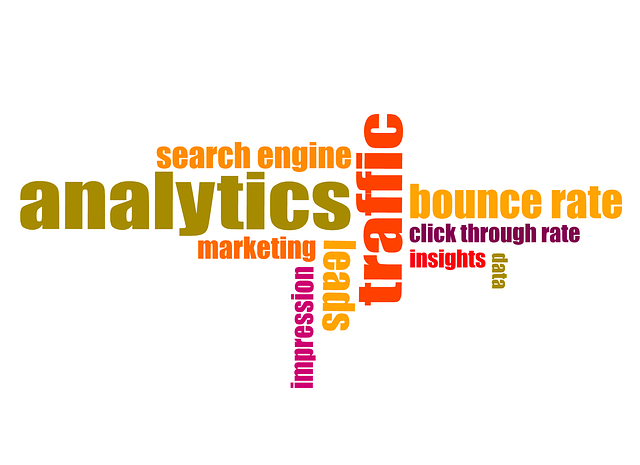Intelligent search, powered by AI, represents a significant leap in information retrieval compared to traditional keyword-based methods. By employing machine learning and natural language processing (NLP), it interprets user queries more accurately, delivering contextually relevant results. This approach enhances efficiency, personalization, and accuracy, revolutionizing how users discover online content. However, challenges like data quality and intent understanding remain, requiring ongoing improvements in NLP and data management. The future holds immense potential, with advancements in machine learning, semantic search, voice assistants, and conversational interfaces promising a more intuitive and personalized digital experience.
“Unleash the power of Intelligent Search, a revolutionary paradigm shift in information retrieval. This article guides you through the transformative journey from traditional search methods to AI-driven solutions. Discover how machine learning enhances user experiences, accuracy, and efficiency. Explore the unique capabilities that set intelligent search apart, while delving into its numerous advantages. Moreover, we’ll dissect challenges and limitations, offering insights into overcoming obstacles. Look ahead to the future with trends and predictions shaping AI-powered search.”
- Understanding AI-Powered Search: The Basics Explained
- How Does Intelligent Search Differ from Traditional Methods?
- Benefits of Implementing AI in Search Functions
- Challenges and Limitations: Overcoming the Obstacles
- Future of AI-Driven Search: Trends and Predictions
Understanding AI-Powered Search: The Basics Explained

AI-powered search, also known as intelligent search, represents a significant leap forward in how we interact with information. Unlike traditional search engines that rely on keyword matching and ranking algorithms, AI-driven search leverages machine learning and natural language processing to understand user intent more profoundly. This advanced approach allows for more accurate and contextually relevant results, transforming the way users discover information online.
At its core, intelligent search involves training algorithms on vast datasets to recognize patterns, associations, and nuances in human language. By interpreting user queries as questions or requests rather than just keywords, AI search engines can deliver tailored responses. Whether it’s understanding complex queries, handling synonyms, or recognizing user preferences, this technology aims to provide a more personalized and efficient search experience.
How Does Intelligent Search Differ from Traditional Methods?

Intelligent search represents a significant departure from traditional methods, leveraging advanced algorithms and machine learning to deliver more accurate and contextually relevant results. While conventional search engines rely on keyword matching and ranking based on frequency, intelligent search goes beyond these basic parameters. It analyzes user intent, considers semantic meaning, and even predicts future queries by understanding patterns in vast amounts of data.
In contrast, traditional methods often struggle with ambiguity, misspellings, and the ever-evolving language nuances. Intelligent search, however, incorporates natural language processing (NLP) to interpret complex queries, account for synonyms, and provide answers that align closely with what the user truly intends to find. This level of sophistication enhances user experience by offering quicker, more precise access to information, transforming how we interact with digital content.
Benefits of Implementing AI in Search Functions

Implementing AI in search functions offers a multitude of benefits, revolutionizing how users interact with information. Intelligent search algorithms can understand natural language queries, providing more accurate and relevant results compared to traditional methods. This advancement is particularly beneficial for users facing complex or ambiguous searches, as AI can interpret context and intent, delivering precise answers.
Furthermore, AI-powered search enhances efficiency by automating tasks such as data indexing and ranking. It enables faster processing of vast datasets, ensuring users receive timely responses even with extensive information repositories. The personalization aspect is another advantage; AI algorithms adapt to individual user preferences, behaviors, and search histories, offering customized results that cater to unique informational needs.
Challenges and Limitations: Overcoming the Obstacles

Despite its immense potential, AI-powered search, or intelligent search, faces several challenges and limitations that must be addressed to achieve true efficiency. One of the primary obstacles is data quality. For AI algorithms to function optimally, they require vast amounts of clean, well-structured data. Incomplete or inaccurate datasets can lead to biased results or an inability to deliver relevant answers, undermining the very purpose of intelligent search.
Another significant challenge lies in understanding user intent. While natural language processing (NLP) has advanced greatly, deciphering nuanced queries and contextual meanings remains complex. Misinterpretation of user requests can result in irrelevant search outcomes, eroding user trust and satisfaction. Overcoming these obstacles requires continuous improvement in data management practices, investment in sophisticated NLP algorithms, and the integration of diverse learning techniques to enhance AI search capabilities.
Future of AI-Driven Search: Trends and Predictions

The future of AI-driven search is poised for significant advancements, revolutionizing how we access and interact with information. As technology evolves, intelligent search will become increasingly sophisticated, leveraging machine learning algorithms to understand user intent more accurately. This evolution will lead to more precise and contextual search results, tailored to individual preferences and needs.
Trends suggest a move towards semantic search, where AI interprets the meaning behind queries rather than simply matching keywords. Voice assistants and conversational interfaces will also gain prominence, enabling users to engage in natural language interactions with search engines. Additionally, personalized search experiences will become the norm, utilizing user behavior data to deliver relevant and up-to-date results, fostering a more engaging and intuitive online journey.
AI-powered search is transforming the way we interact with information, offering unparalleled efficiency and accuracy. By understanding its fundamentals, recognizing the distinct advantages it offers over traditional methods, and addressing current challenges, organizations can harness the full potential of intelligent search. As technology advances, expect to see even more sophisticated AI algorithms, improved natural language processing, and enhanced user experiences. The future of search is here, and it’s intelligent.
